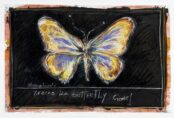There's a mixed crowd at Rough Trade East, a record shop in ever-so hip Brick Lane. They're listening to Tav Falco read extracts from his new book, Ghosts Behind
the Sun: Splendor, Enigma and Death, a psychogeographic history of Memphis written through the eyes of time traveller, Eugene Baffle. I can see a smattering of fifty-something rockabilly musicians wearing bowling shirts, a few chin stroking literary types, a number of Hackney bohos in identical vintage outfits, some random record buyers who appear to have stumbled upon this by chance and a couple of overweight music industry types sweating in the heat and speaking in stage whispers.
Tav Falco cuts a striking figure in an immaculate shiny light grey suit paired with a black shirt and striped tie, two tone shoes and a black quiff that would not have disappointed a young Morrissey. He reads not from a copy of the book but from loose sheets of paper. Consequently, at times he comes to the end of a page and stops abruptly mid sentence as he shuffles through his papers, frantically trying to find which page follows on.
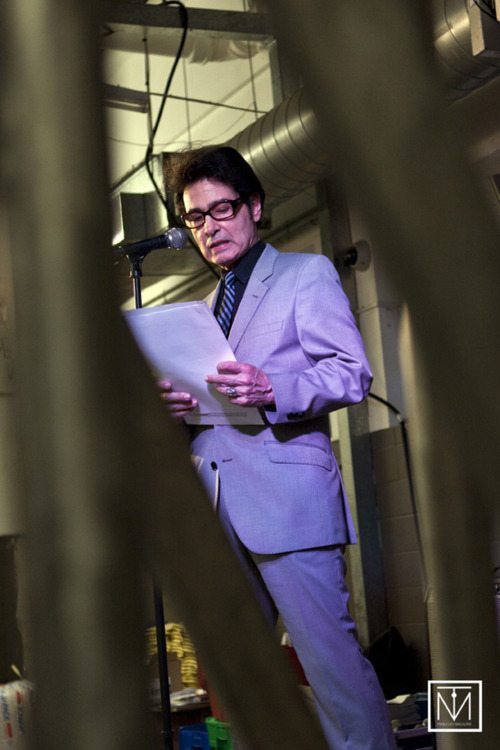
At times his writing has the quality of a stream of consciousness and you picture him furiously hand writing it all during one 3am session, but there is also a sense of detail akin to that of Bukowski, and standing as I am between aisles of low-fi American indie CDs, I can visualise the Memphis landscapes, the railroads, the kitchens, the woman with a Pall Mall dangling from her liplined mouth.
Off stage, he seems less assured. As we start the interview, he is distracted by tedious practicalities – he has to Brylcreem his hair, he looks around nervously trying to locate his wife, he has to be at another book reading in Wood Green later and isn’t sure how to get there by public transport. When I ask him what inspired him to write the book, he tells me poker faced it was because he was “asked to… we signed a contract, they paid me an advance…”.
He describes how he initially felt overwhelmed by the project and struggled to start until he came up with the concept of the time traveller, which he says was “the only way to make it interesting, to cover ground I wanted to cover”. All the events actually happened and all the speech in quotation marks is from real conversations, he tells me, “and there are a lot of quotation marks,” although he has allowed himself some artistic licence in the placing of events.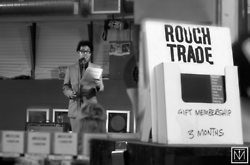
It is clear that he has put his soul into the book, it is thoroughly researched; he talks of the impossibility of understanding places and events if one is unaware of the historical background, and he writes with a passion for the subject, but Tav Falco is not one for complacency. He would like to have had more time to weave some of the conversations throughout the book and “could have spent five years refining the prose,” however he does appear to be cautiously pleased with the finished article.
Despite this seeming love affair with Memphis, Tav Falco left the city some years ago, living in Paris and now in Vienna. He says, “I could have stayed my whole life in Memphis and been a rocker, that’s ok for some people,” but evidently not for him. He states with pride that he has always taken a deliberate decision to choose particular places to live rather than be swept along by circumstances or to remain anywhere by default or inertia. Vienna, of course, is “not a rock ‘n’ roll town” but it does have some features reminiscent of Memphis – they are both river towns, large enough for there to be sufficient cultural events to keep him engaged but small enough to have a sense of community.
maybe there will never be another Stax or Sun records in Memphis
He speaks of his current home city being accessible, enabling him to meet artistic kindred spirits. He believes that “maybe there will never be another Stax or Sun records in Memphis but the ethos survives” and similarly Vienna has a “tempo that Paris once had” but Paris is now “very urban and stressful, like London”. One wonders if Falco, who sings of being “Born Too Late”, time travels to the Parisian Jazz Age in his mind. He is an accomplished tango dancer and tells me that he is considering recording a jazz album in Paris and singing in French. Ideally he would like to sing it in Spanish but thinks that is a challenge too far. He adds that he has recorded a few songs in Italian and “no-one has complained”.
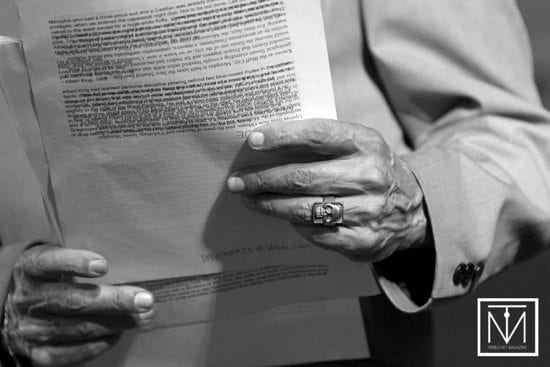
So what advice would he give to young artists looking to subvert the system and shake people from their complacency? Hasn’t it all been done before? He looks earnest. “Shock is not the only justification. Sure we’ve all used that and we want to wake people up, shock people, destroy guitars, take clothes off on stage, we’ve done all of that, Lux (Interior from The Cramps) cut himself on stage… In America they use violence to sell their products, sex and violence in an exploitative sense. They feel this is the only way to sell products and reach an audience. It’s a real impoverishment of the imagination and I’m not interested in that, not interested in that approach.
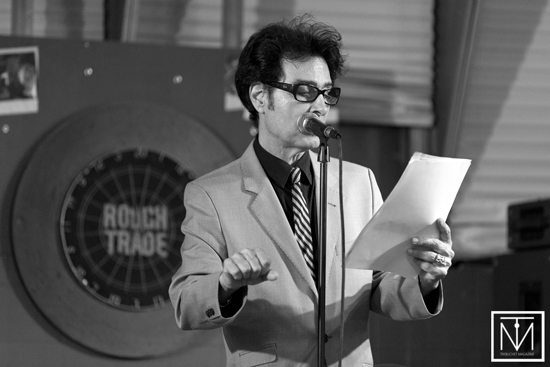
Time is too short to screw around now, you’ve really got to, as an artist, find your own way and you have to tell the truth, you have to find truth in what you’re doing because otherwise there’s no substance, there’s no truth in it… that’s what makes a poem, you know that it’s actual, it can be a fantasy but it has to hold a certain element, has to convince you and the way it convinces you is that it has certain reality or surreality or certain palpable truth so a person understands and it means something to them.”
in revolutions you sacrifice a lot, I mean in 1968 we sacrificed a lot
When I mention Situationism, he smiles to himself, “Ah, Situationism, Guy Debord…” and when I ask him about the Occupy movement, he becomes animated. He went to visit the occupation in New York last September and he has “the utmost respect for the occupiers and those who are trying to make a difference.” He shares their views on the banking system, “they use tax payers’ money, use the people’s money and exploit us,” and has a clear analysis that it is a problem inherent in a competitive system, not merely a problem of a few greedy individuals – “it’s a sick rat race”. He speaks of the need for revolution but warns, “be careful because in revolutions you sacrifice a lot, I mean in 1968 we sacrificed a lot, we gained a lot but we lost a lot.”
I ask him what he thinks was lost, expecting perhaps a reference to party bureaucracy or infighting or maybe on a more theoretical level, a dilution of ideals. His answer surprises me, “partner dancing was over… nobody touched each other; it was totally free form dancing…”.
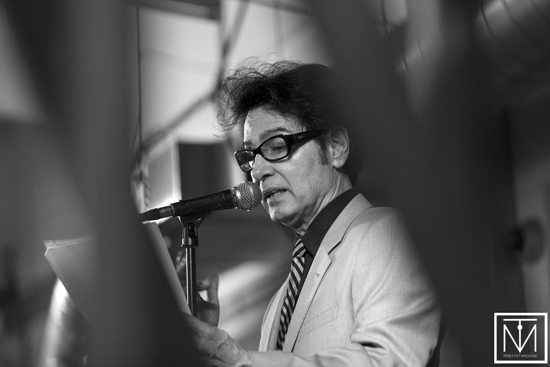
Perhaps that comment best captures the enigma that is Tav Falco, a man striving to constantly reinvent himself and change the world but craving a simpler and more romantic era – to paraphrase Emma Goldman, if he can’t tango, he doesn’t want to be part of your revolution.
Images: Carl Byron Batson












